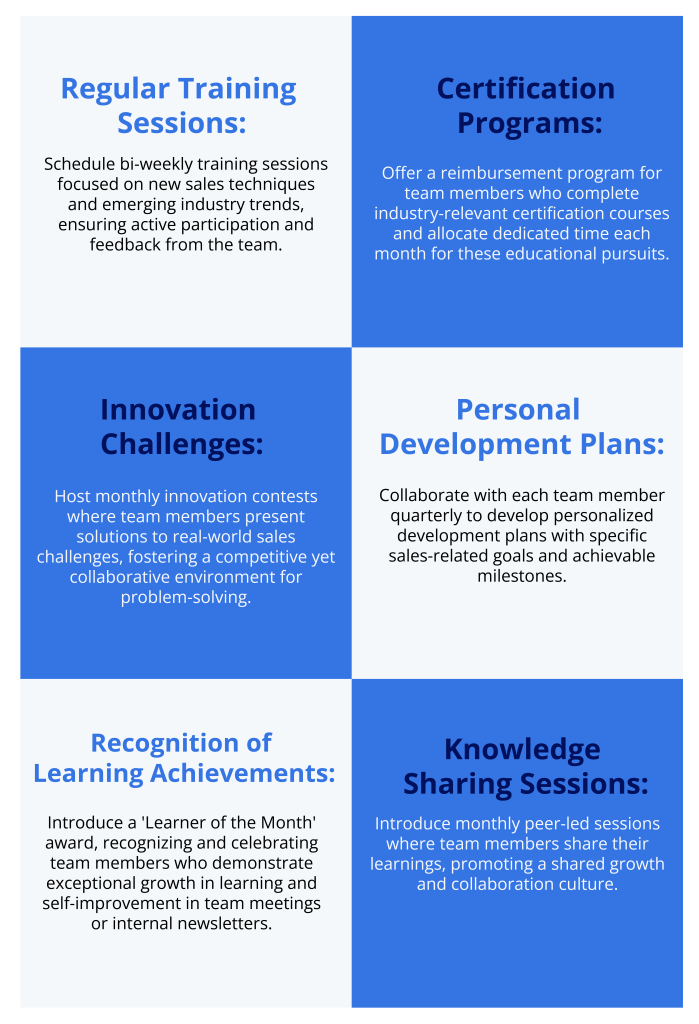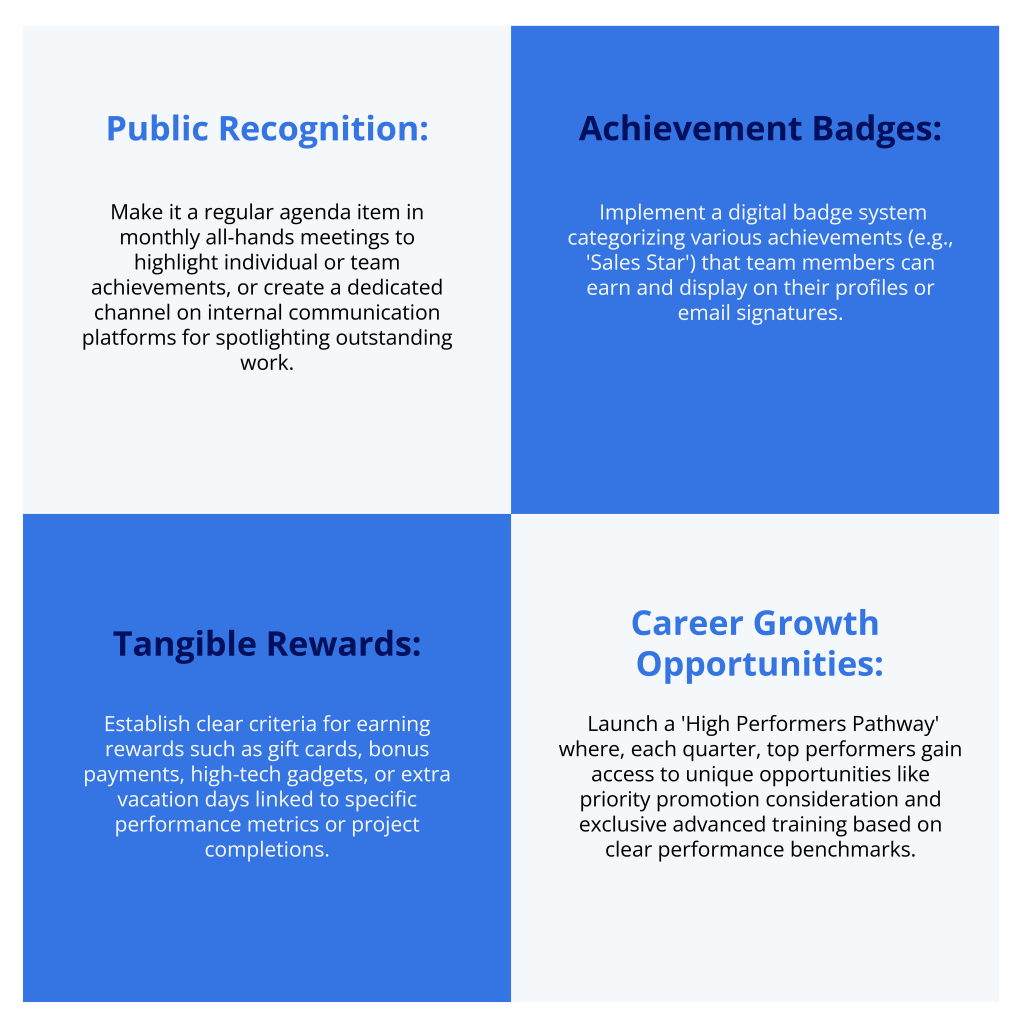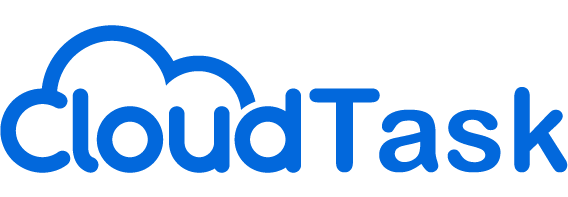Remote sales teams should focus on career growth for individual and overall success. When remote employees receive support for their career development, it benefits everyone. This leads to increased revenue generation, innovation, and operational efficiency.
Research shows that investing in employee career growth builds loyalty and attracts motivated candidates, which is crucial for remote positions. Additionally, providing additional skills training is essential for recruitment since most employees prefer organizations that offer it.
Remote job seekers prioritize career development opportunities, and many are willing to change jobs for better learning prospects. However, some employees feel underutilized due to inadequate development opportunities and may even consider leaving their current jobs for career advancement.
In this blog, we will share tips on boosting performance and team retention by supporting the career growth of remote sales professionals.
Foster a Learning-Driven Company Culture
Creating a culture of continuous learning is crucial to succeed in a remote sales environment. This means valuing traits like curiosity, innovation, and self-improvement. Such a culture attracts lifelong learners and motivates your current team to keep growing.
Here are some practical ways to encourage this culture:

Provide Clear Career Growth Paths
When hiring people for remote sales positions, it’s essential to tell them what their career path will be within your organization.
Creating a career growth path for each sales position and including it in your remote job ads is a good idea. This will help potential candidates see their future with your organization and prevent them from feeling stuck in the same job for too long.
By doing this, you’ll be transparent about what opportunities are available and help people envision their potential growth with your organization.
Here’s how to establish and communicate these paths effectively:
- Job Description with Clear Career Path: Provide a clear progression path for each role. For instance, SDRs should know how to become Sales Managers. Emphasize milestones like target achievements and leadership training. Similarly, show Account Executives how to advance to Senior Account Executive or Sales Director. Highlight skills like client relationship management and strategic selling. This approach motivates candidates and clarifies their potential growth opportunities.
- Career Development Meetings: Regularly schedule meetings to discuss career goals with each team member. This not only helps in personalizing the path but also ensures alignment with company objectives.
- Skill Development Roadmaps: Create a roadmap for each role that outlines the skills and competencies needed to advance to the next level. This could include specific training programs, performance benchmarks, and key areas of improvement. and can be easily managed with employee training and development software.
- Mentorship for Progression: Pair employees with mentors in higher positions. These mentors can provide insights into the skills and experiences required to advance their careers.
- Transparency in Promotions: Make the criteria for promotions transparent. This helps employees understand what is expected of them and what they must work on to achieve their next role.
Encourage Role Variation and Cross-Training
To keep remote employees engaged and versatile, it’s important to introduce job rotation and cross-departmental training.
Variety is important for people; these practices help break the work routine. They provide new challenges and help employees understand different parts of the business.
Here’s how to do it effectively:
- Job Shadowing Within Department: Consider using job shadowing to allow employees to follow a team leader or colleague in a higher role for a day. This exposure helps your team members understand different roles and offers valuable insights into how they can enhance their performance and what the next career step might entail.
- Cross-Training in Related Departments: Encourage employees to explore different departments’ roles. This will help to diversify their skill set and expand their business knowledge. For instance, a graphic designer could learn how to boost on-site conversions by collaborating with the web development or marketing teams.
Provide Effective Mentorship and Real-Time Feedback
Establishing strong mentorship programs and providing regular feedback are important ways to promote employee growth and development.
These practices encourage a culture of continuous learning and improvement and also help remote teams build stronger connections.
To effectively guide remote sales professionals toward realizing their full potential and achieving their career goals, consider implementing these best practices:
Mentorship Programs:
- Volunteer Mentorship Roles: Invite employees to volunteer as mentors or mentees. This fosters a culture of growth and accountability.
- Regular Meetings: Encourage mentor pairs to meet regularly for knowledge sharing and support over a few months or a year, with the option to switch pairs afterward.
- Mentoring for New Managers: Consider mentoring a valuable tool to bolster employees’ leadership and coaching skills recently promoted to managerial positions.
- One-on-One Sessions: Encourage career-related conversations and explore potential roles that align with employees’ interests and development objectives during mentoring sessions.
- Junior/Senior Mentorships: Pair junior employees with senior mentors for rapid onboarding and professional guidance, while senior employees can gain fresh perspectives and learn about new technologies or processes.
Real-Time Feedback:
- Immediate Feedback: Provide feedback promptly, for instance, commenting on a deliverable as soon as it’s submitted. This helps employees learn and improve while the task is still fresh in their minds.
- Constructive and Directional Feedback: Combine praise with actionable advice during feedback. For example, specify what was engaging after a presentation and suggest improvements for future presentations, with links to resources or examples.
- Regular Check-Ins: Schedule bi-weekly one-on-one meetings to discuss ongoing projects, celebrate achievements, and provide clear guidance on tackling challenges or skill gaps.
- Recognition and Encouragement: Use simple gestures, like a Slack message, to motivate and encourage employees to pursue professional development.
- Anonymous Surveys: Bi-monthly, conduct anonymous surveys asking for input on the company’s career development initiatives, such as preferred learning methods or suggestions for enhancing mentorship programs.
Recognize and Reward Achievements
It’s essential to motivate remote employees and emphasize the value of their skill improvement by recognizing and rewarding their accomplishments.
By adopting a framework that acknowledges employees’ contributions, you improve their confidence and align their progress with the company’s progress.
Here are some tactics you can use:

Conclusion
Supporting remote sales professionals is vital for a thriving business.
Boosting career growth is crucial in enhancing individual performance and strengthening the team. This, in turn, leads to increased efficiency and innovation.
Investing in your team’s growth is essential by providing them with training, clear paths for progression, and mentorship programs.
You can create a motivated, skilled, and dedicated remote sales workforce by fostering a culture of ongoing learning, delivering constructive feedback, and recognizing achievements.
Frequently Asked Questions (FAQs)
How can remote sales teams stay motivated and productive?
- Remote sales teams can stay motivated by setting clear goals, receiving regular feedback, participating in virtual team-building activities, and accessing the necessary tools and resources for their work.
What are effective ways to measure the performance of remote sales professionals?
- Performance can be effectively measured through KPIs like sales targets, customer satisfaction ratings, engagement metrics, and the completion of training or development programs.








